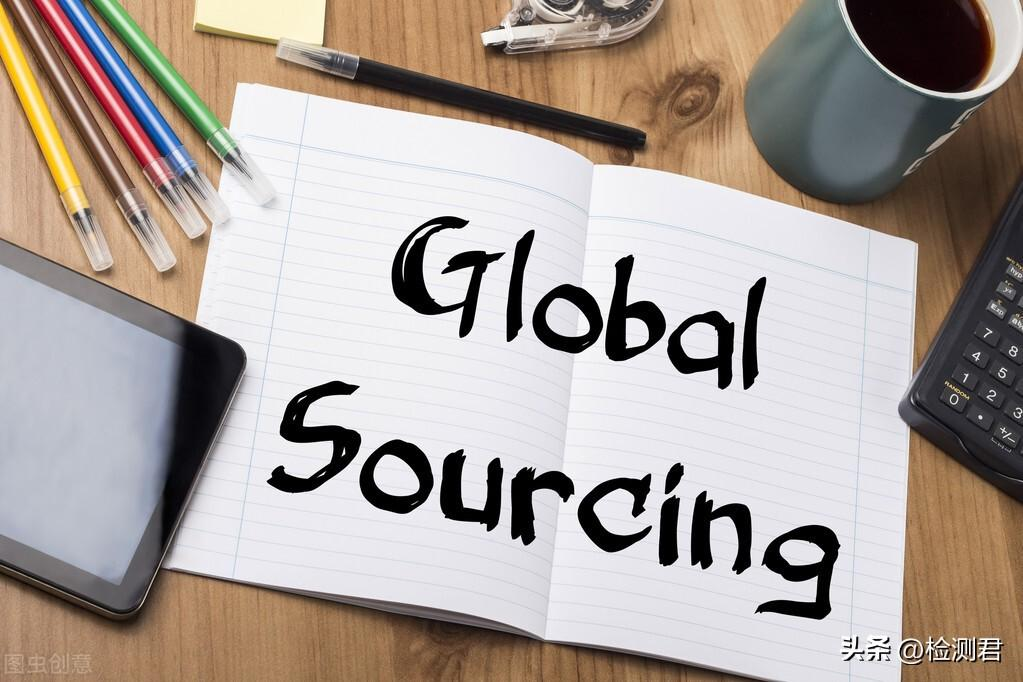
With the vigorous development of international economy and trade, such as the exchange of international production technology, the export and import of finished and semi-finished products, the formation of import and export transactions is usually formed through the early publication medium to the recent e-commerce e-commerce logistics rapid development, production The scale has also expanded from regional production to transnational overseas and international division of labor, trying to improve the quality of products with new material technology and production technology. The former refers to the research and development of new materials to replace traditional materials, among which The components of the computer information industry are typical representatives; the latter refers to the innovation of production processes, usually replacing labor-intensive traditional industries with automated production of emerging industries. Both are seeking how to reduce production costs and improve product quality, and their ultimate goal is to improve the international competitiveness of national industries, and those who shoulder this important task can only rely on the professionalism and hard work of purchasing personnel.
Therefore, the degree of internationalization of corporate procurement is related to the level of corporate profits. Procurement personnel need to establish new concepts as follows:
1. Change the price limit of the inquiry
When general purchasers make inquiries about international purchases, they always focus on the price of the product. As everyone knows, the unit price of the product is only one of the items, and it is necessary to specify the quality, specification, quantity, delivery, payment terms, etc. of the required product; if necessary, obtain samples, test reports, catalogs or instructions, certificate of origin, etc. ; Procurement staff with good public relations will always add warm greetings.
Usually the more professional inquiry focuses are listed as follows:
(1) Name of Commodity
(2) Item Itemorarticle
(3) Material Specifications MaterialSpecifications
(4) Quality
(5) Unit Price UnitPrice
(6) Quantity
(7) Payment Conditions PaymentConditions
(8) Sample
(9) CatalogueorTableList
(10) Packing
(11) Shipping Shipment
(12) Complimentary Phraseology
(13) Others
2. Proficient in international trade practice
In order to enhance international competitiveness and grasp the advantages of production resources, enterprises need to rely on procurement personnel to complete their missions. Therefore, the talents needed for “how to improve the level of international trade” should be cultivated in order to keep pace with the advanced countries in the world.
There are eight points that should be paid special attention to in international procurement:
(1) Understand the customs and language of the exporting country
(2) Understand the laws and regulations of our country and exporting countries
(3) The integrity of the content of the trade contract and written documents
(4) Being able to grasp market information in a timely manner and effective credit reporting
(5) Follow international trade agreements and intellectual property rights
(6) Observe more international political and economic changes
(7) Develop procurement and marketing business through e-commerce
(8) Cooperate with financial experts to properly manage foreign exchange risks
3. Effectively grasp the international inquiry and negotiation mode
The so-called “inquiry” means that the purchaser requests a quotation from the supplier on the content of the required goods: quality, specification, unit price, quantity, delivery, payment terms, packaging, etc. “Limited inquiry mode” and “expanded inquiry mode” can be adopted. “Limited inquiry mode” refers to informal inquiry, which requires the other party to price according to the content proposed by the purchaser in the form of personal inquiry; “Model” must be based on the supplier’s price in accordance with the price inquiry proposed by us, and put forward a quotation for the goods to be sold. When making a contract, the purchasing party can further submit an inquiry form with a relatively complete quantity, specific quality, clearly defined specifications and cost considerations, and make a formal document and submit it to the supplier. This is a formal inquiry. Suppliers are required to respond with official documents and enter the procurement control procedure.
When the purchaser receives the official document submitted by the supplier – the sales quotation, the purchaser can adopt the cost pricing analysis mode to further understand whether the price is the lowest and the delivery time is appropriate under the most appropriate demand and quality. At that time, if necessary, the limited inquiry mode can be adopted again, such a one-off bargain, commonly known as “bargaining”. In the process, if two or more suppliers meet the same requirements of the buyer, the price is limited to the price measurement. Way. In fact, the operation of price comparison and negotiation is cyclical until the procurement needs are met.
When the conditions negotiated by the supply and demand sides are close to the purchasing side, the buyer can also take the initiative to make a bid to the seller, and give it to the seller according to the price and conditions that the buyer wants to complete, expressing his willingness to negotiate a contract with the seller, which is called a purchase bid. If the seller accepts the bid, the two parties can enter into a contract of sale or a formal quotation from the seller to the buyer, while the buyer gives the seller a formal purchase order.
4. Fully understand the content of quotations from international suppliers
In international trade practice, the price of a product usually cannot be made into a quotation alone, and must be made with other conditions. For example: product unit price, quantity limit, quality standard, product specification, valid period, delivery conditions, payment method, etc. Generally, international trade manufacturers print their own quotation format according to the attributes of their products and past trading habits, and purchase Personnel should really understand the format of the other party’s quotation to avoid serious losses caused by the following situations, such as the seller’s refusal to delay delivery fines, the seller’s refusal to pay a performance bond, the seller’s failure to fulfill the claim period, the seller’s territorial arbitration, etc., which are not conducive to the purchaser’s conditions. Therefore, purchasers should pay attention to whether the quotation conforms to the following principles:
(1) The fairness of the contract terms, whether the purchasing party has an advantage? It is best to consider the interests of both parties.
(2) Does the quotation comply with the specifications and costs of the production and sales department, and can it enhance the competitiveness of the product?
(3) Once the market price fluctuates, will the integrity of the supplier affect whether or not to perform the contract?
Then we will further analyze whether the content of the quotation conforms to our purchase requisition:
Contents of the quotation:
(1) Title of quotation: Quotation is more general and is also used by Americans, while OfferSheet is used in the UK.
(2) Numbering: Sequential coding is convenient for index query and cannot be repeated.
(3) Date: record the year, month, and day of issuance to grasp the time limit.
(4) The name and address of the customer: the object of the determination of the profit obligation relationship.
(5) Product name: the name agreed by both parties.
(6) Commodity coding: international coding principles should be adopted.
(7) Unit of goods: according to the international unit of measurement.
(8) Unit price: It is the standard of valuation and adopts the international currency.
(9) Place of delivery: indicate the city or port.
(10) Pricing method: including tax or commission, if it does not include commission, it can be added.
(11) Quality level: It can properly express the acceptable level or yield rate of product quality.
(12) Transaction conditions; such as payment conditions, quantity agreement, delivery period, packaging and transportation, insurance conditions, minimum acceptable quantity, and quotation validity period, etc.
(13) Signature of quotation: The quotation is valid only if the quotation has the signature of the bidder.
Post time: Aug-31-2022






